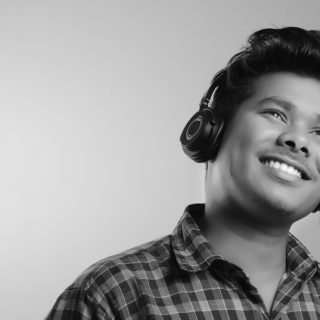Despite considerable progress over the last decade, the phenomenon of diet culture continues to have a significant impact on the way you view your own body. It’s time to rebel and embrace your wonderful physical imperfections.
Too fat, too thin, too much cellulite… Stop relying on a diet culture that imposes prehistoric beauty standards and leaves you feeling helpless. There are alternatives that will benefit your mental health on a daily basis.
Self-acceptance
You’re torn about this practice, which seems so extraordinary, but the pressures of the diet culture prevent you from doing it. That’s normal, it’s a very personal process that needs to be nurtured with patience and resilience, because it’s made up of ups and downs.
Here are some tips for working on your self-acceptance:
- Practice self-love. This will help you to recognise your intrinsic value, regardless of your physical appearance.
- Identify your strengths and qualities. Write them down, along with your successes and proud moments. This will boost your confidence.
- Stop making comparisons. There’s nothing worse than fuelling your feelings of dissatisfaction and preventing you from fulfilling yourself. Remember that everyone has their share of challenges, and you don’t want to carry them on your back.
- Be grateful. Your life is full of good things. Appreciate them and your personal satisfaction will increase.
- Set goals based on your values, not those dictated by society. You’ll benefit by finally getting in tune with the person you are.
Intuitive feeding
It has been proven time and time again that the diets promoted by the diet culture are detrimental to our health and, more importantly, to our relationship with our bodies. Between frustration and rapid weight gain, dieting leads us into a downward spiral.
There’s a natural and effective solution for rediscovering a healthy relationship with food and losing weight with a sense of fulfilment: intuitive eating.
Here are the key steps to practising it and moving away from strict diets:
- Take the time to listen to your hunger and satiety cues. You’ll probably need to relearn how to recognise them. Make a note of how you feel when you feel the urge to eat, so that you know when your hunger is caused by your emotions and can put them aside. Similarly, eat slowly and consciously so that you know when your body has reached satiety.
- Allow yourself all the foods that give you pleasure. Demonising chocolate, sugar or a good burger will only increase your feelings of frustration and your cravings. So give yourself a taste orgasm every now and then without feeling guilty, and your relationship with food will be all the better for it!
The need for well-being
To counter the effects of diet culture on your daily life, it’s important to develop strategies to help you feel better. Here are some ideas to help you:
- “Joyful movement“. This approach involves choosing physical activities that give you pleasure and satisfaction, rather than focusing on burning calories and losing weight.
- Practice self-care and improve your mental wellbeing. For example, you can practise mindfulness, create a positive social environment, or seek help from a mental health professional.
- Focus on your overall health rather than your weight. This means considering all aspects of your health, including a balanced diet, regular physical activity, restful sleep, and good stress and anxiety management.






























Follow us on Instagram